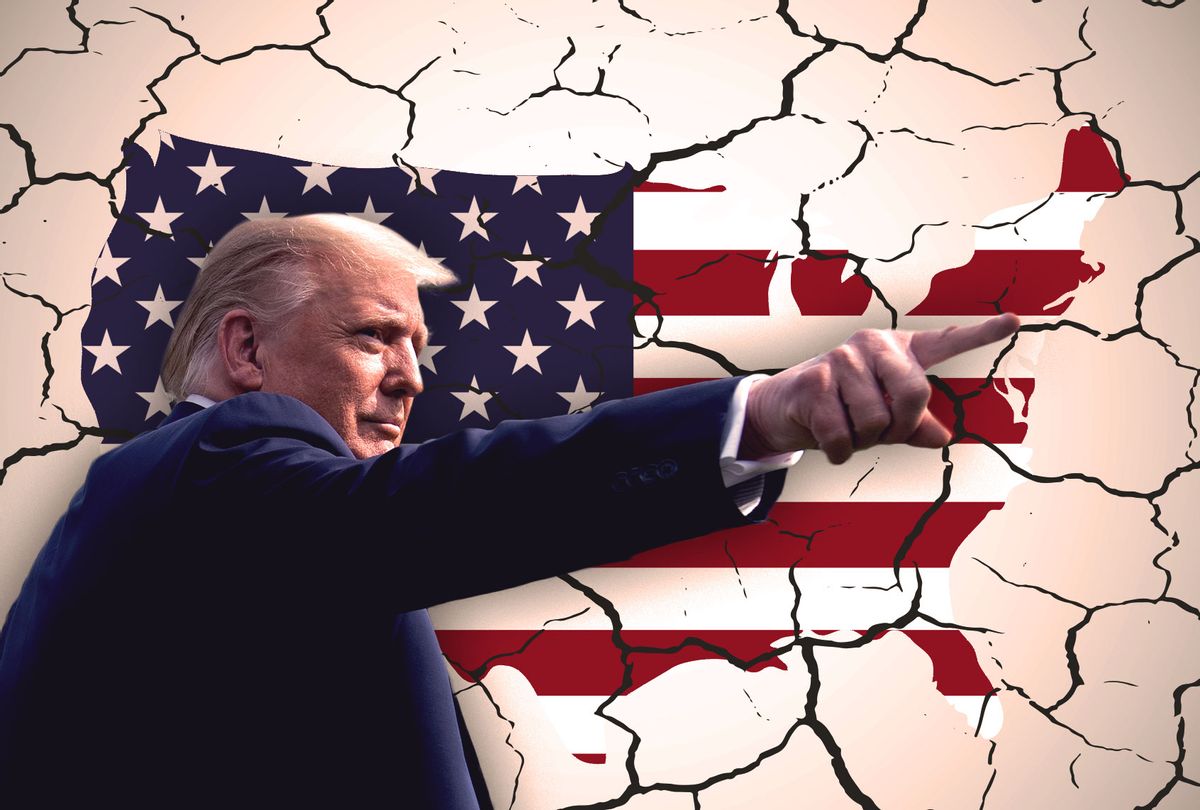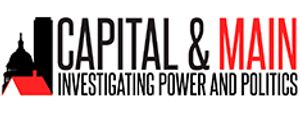Months before a global pandemic rocked our economy and led to millions of lost jobs, these words were spoken to me by Oyawele Dumas, a Detroit child care provider: "A lot of families are stressed out and don't know how they're going to make it day to day, and whether they're going to have shelter."
When I met Dumas, the economy was supposedly booming, though for her it was not. In late 2018 the federal government shut down as a result of Donald Trump's effort to press Congress to pay for a border wall with Mexico, starving Dumas of clients and child care subsidies, and pushing her into debt.
I met Dumas as part of a year-long reporting project for Capital & Main on economic inequality and how it has affected the most consequential presidential campaign in our lifetime. In spite of her difficult circumstance, Dumas was politically engaged, as were many of those we spoke to over the past 12 months. They include Tony Valdovinos, an undocumented student who would not let his inability to vote stop him from getting Arizonans to the polls, as well as Lynn and Nancy Utesch, Wisconsin dairy farmers who were organizing their neighbors to push back against agribusinesses that have contaminated local wells and forced smaller operators into bankruptcy.
But conversations with poor and working-class people also reveal how difficult it will be to tackle a problem that has only been made more stark by a global pandemic. Why? Americans are beset by skepticism of politics, overwhelmed by the daily demands of life in a pandemic. And they are divided by race, class and party.
"I kind of figured [Trump] was going to win anyways," Robert Glover, a father of five, told me, explaining why he did not bother to register to vote in 2016. He was moving his family from Erie, Pennsylvania to Cleveland because of a lack of job opportunities. And that was during an economy with record-low unemployment. Voter turnout in the U.S. is worse than in most other developed countries, and many people simply don't register to vote.
Meanwhile, Erie truck driver Jim Boehm, who suffered from a bad back from long hours behind the wheel, was inspired by Trump's pledge to build a border wall with Mexico. Pressed about tax cuts that favored the wealthy, he pushed back. "It's like Congress. They give themselves raises all the time, and they're not doing anything."
Glover is African American and Boehm is white, and for those hoping to see transformative change, each man's approach to politics – Glover's disengagement and Boehm's anti-immigrant stance – could provoke a sense of hopelessness. But focusing solely on the skepticism and division of voters at the bottom of the economic ladder misses the point by a long shot.
Ample research suggests that we have a political system – and political leaders – who have been increasingly unresponsive to the needs of the poor and working class. And economic mobility has been declining as well. More than 90% of children who were born in 1940 grew up to earn more than their parents. Only 50% of children born 40 years later will go on to earn more than their parents, according to a Harvard University team of researchers led by Raj Chetty.
We launched the series with a timeline that highlighted some of the major decisions that have contributed to the growth of economic inequality over the last 40 years, from efforts to quash labor reform to giant tax breaks to free trade agreements that have encouraged the outsourcing of jobs. Those decisions – all attacks on an already fragile social contract between workers, government and business – have been made under Democratic and Republican administrations alike. The U.S. is unusual. It has a level of economic inequality that is higher than its peer nations, and wealth inequality has been on the rise, with the top 0.1% of Americans holding about as much wealth as the bottom 90%.
In 2016, Trump did particularly well in regions of the country – from Dayton to Erie to Battle Creek – that had seen a decades-long loss of manufacturing jobs and the decline of industrial unions, institutions that checked corporate power, built the middle-class jobs and also fostered solidarity across racial lines. Trump exploited the declining fortunes of the white working class with his promise to bring back manufacturing jobs to the industrial Midwest, to "make America great again."
In spite of his promise to represent working people, Trump's policies have largely not delivered. His infrastructure plan never materialized. More than half of all states saw slower median household income growth during Trump's first three years when compared to the three years leading up to his presidency. Corporations and the wealthy have seen their taxes slashed, while attacks on the Affordable Care Act have swelled the ranks of the uninsured. In the last month, Trump has prioritized his Supreme Court pick over an economic relief package for working people.
This hard-right approach to policy is not popular, making it all the more important to exploit racial divisions and incite xenophobia; fear of looters has replaced immigrant caravans in this campaign cycle. And it has led to Republicans' reliance on creaky and undemocratic institutions like the Senate and the electoral college, which give outsized weight to people in low population states, along with gerrymandering and outright attacks on the voting process.
"The spectacle of right-wing populism gets all the press," argue Jacob Hacker and Paul Pierson in Let Them Eat Tweets: How the Right Rules in an Age of Extreme Inequality. They suggest we pay attention to the Koch Network, the chamber of commerce, the "plutocrats" who are driving the Republican economic agenda. The populist support for Trump is genuine, but one wing of the Republican party can't maintain control of the country without the other.
This election cycle began with progressive candidates putting forward dueling plans to address rising economic inequality, and it is ending in the midst of a deadly pandemic that has only accelerated its cruel march. What will follow?
Will the Black Lives Matter movement help lead to a narrowing of a racial wealth gap that leaves the median white family with nearly ten times more to fall back on than the median Black family? Will white working-class voters who support Trump turn their ire on corporate executives whose pay is now more than 300 times that of the average worker, up from 20 times in 1965? Or will legislation to shore up the health care system and strengthen labor unions be stymied by Republican-led Senate filibusters, corporate lobbyists and a lack of Democratic ambition? It will take hard work to address this crisis from the grassroots on up. And we still need to beat COVID-19.
"Sometimes it takes a disaster for big policy changes to actually be made." Those words were spoken to me by West Virginia University political science professor William Franko last fall, at the start of this project.
We got our disaster. Now let's hope we get some change.




Shares